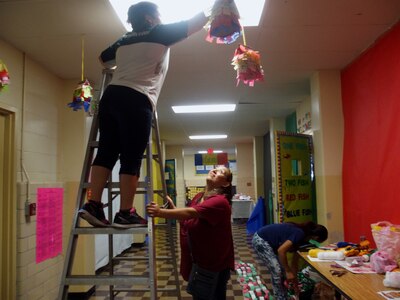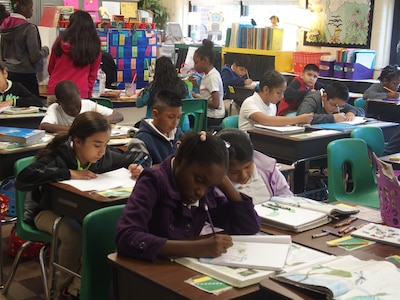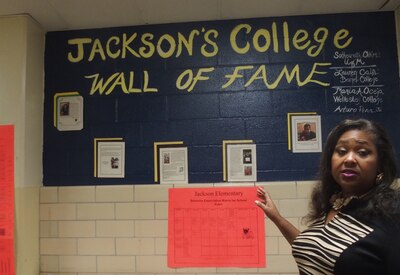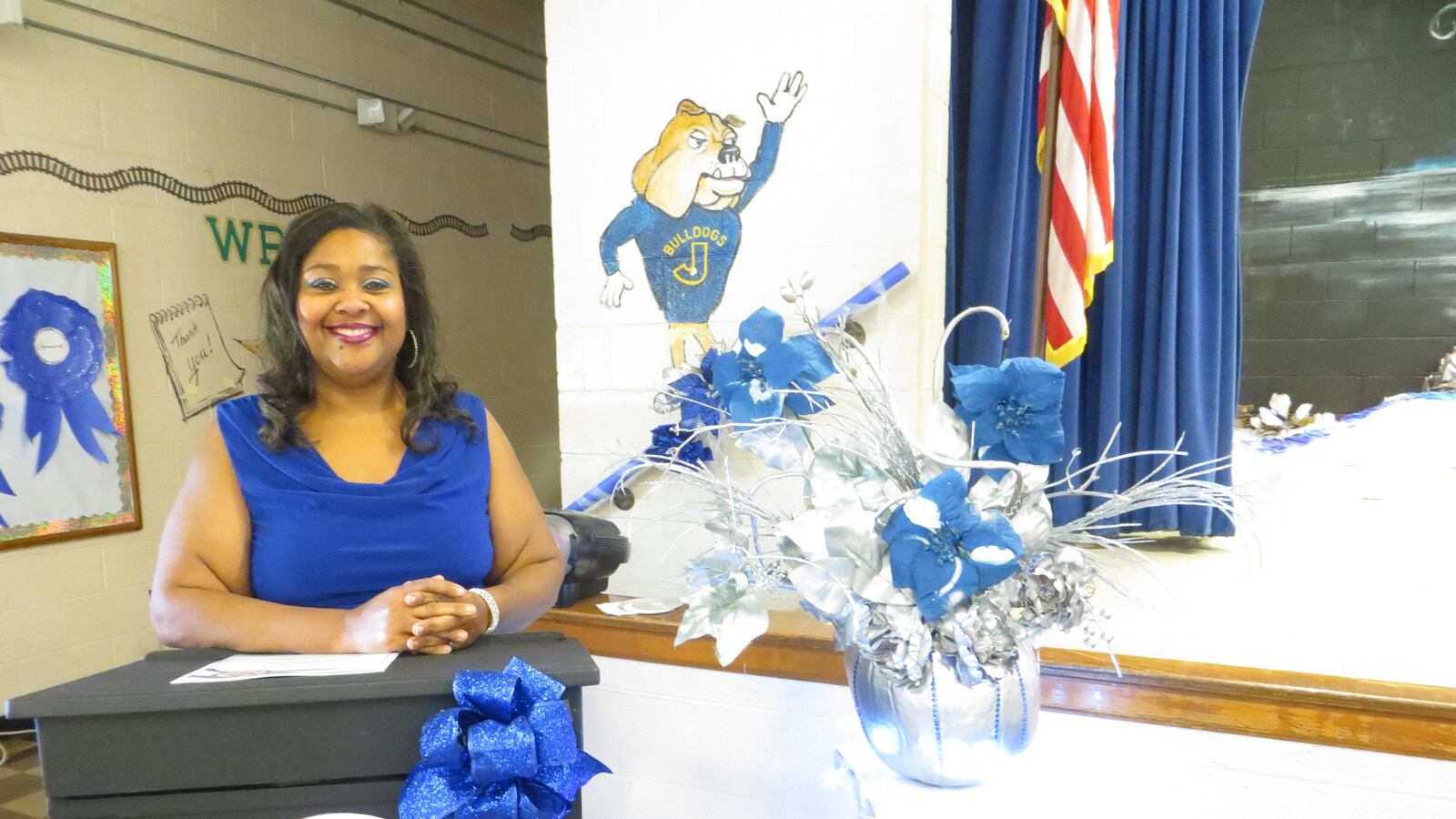In many ways, Jackson Elementary School is an anomaly in Memphis.
In a district in which more than 78 percent of students are black, 71 percent of Jackson Elementary’s students are Hispanic. And more than 99 percent of its students come from poor families, much higher than the district average. Yet its most recent state test scores outpaced Shelby County Schools in most every subject, earning Jackson Elementary a 2016 Blue Ribbon designation by the U.S. Department of Education for closing the performance gap between poor and minority students and their more affluent and white peers.
To insiders, Jackson is known affectionately as Heidelberg University, named in honor of the school’s inspirational leader.
As principal of the 350-student school, Yolanda Heidelberg fosters an all-hands-on-deck attitude that creates a vibrant learning environment for both students and teachers.

“We’re a family school,” Heidelberg said. That, in turn, trickles down to interactions with parents, who frequently pack the auditorium for parent meetings.
The confidence that Heidelberg exudes is a far cry from how she felt when interviewing for the job in 2001. At the time, Hispanics made up less than a quarter of the school’s enrollment. But district leaders expected the composition to change dramatically as more Hispanic families moved into the neighborhood. Heidelberg was asked if she spoke Spanish and had to answer no.
“I was frightened by that because I wasn’t sure I could help,” Heidelberg recalls of eventually landing the job. “But that became my greatest strength.”
Her lack of knowledge about serving English language learners drove Heidelberg to dive into research on how to help her incoming students feel welcome and flourish academically.
And it worked.

In 2012, Jackson Elementary was named a state Reward School for achieving top growth rates in scores across multiple years. In 2015, the most recent year for which standardized test scores are available, nearly 60 percent of students scored proficient or advanced in state math tests and nearly 70 percent in science. About 40 percent of students did the same in reading.
The school’s success can be traced to Heidelberg’s persona, leadership, coaching and resourcefulness, according to faculty members.
When she was unable to get the former Memphis City Schools to provide translation services to produce literature for parents, Heidelberg found help from the Memphis Police Department. Those services came in handy when she needed content translated for event programs, marquees and even the school’s website.
“I never wanted language to be a barrier for us. … I never want language to hinder our progress,” she said.
Heidelberg also works with area churches and businesses that provide volunteer tutors for Jackson’s after-school programs.

The focus on academics is clear when entering the school, where a prominent display celebrates former students who have gone on to college.
Among staff, teamwork and collaboration are viewed as school values.
Strategies used by teachers of English language learners are often found in mainstream classrooms. Classroom teachers work closely with ELL teachers to plan lessons and skew work toward visuals. To show their mastery of a topic, students can do presentations and projects that aren’t text-heavy but still build language skills.
“We work really hard together — meeting kids where they’re at,” said Charnisha Phipps, a third-grade teacher.
“What sets us apart is that we’re not in competition with each other. We operate as one unit,” adds Lavonda Brown, who teaches fifth grade. “Here we share. We build on each other’s strengths.”
Carla Wilson teaches English language learners but she still attends classroom teacher meetings, for instance, and sometimes steps in other classrooms to offer extra support. “Just because I’m an ESL teacher doesn’t mean I’m only going to be doing that. We go in and do whatever needs to be done,” she said.
The culture is apparent in the front office too, where students and parents vote each month for a “star” staff member. The prize? A lunch out with Heidelberg — and a half day off.
For Heidelberg, the prize is the National Blue Ribbon award, shared this year with 278 other public schools across the nation. While there’s no material benefit, the designation is viewed as a badge of honor in education.
“This is just a validation of the hard work we’ve done over the years,” she said. “It’s finally being recognized.”

